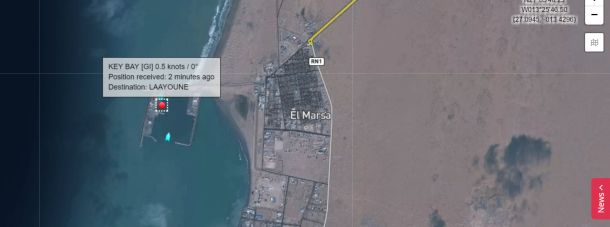In case of reasonable doubt on the true origin of the product - Morocco or Western Sahara - EU customs should "request verification from the competent Moroccan authorities", says the EU Commission.
"Given that the Moroccan authorities do not distinguish between Morocco and Western Sahara, how credible does the Commission consider such a verification from the Moroccan authorities?", an MEP from the EPP raises in a Parliamentary Question to the EU Commision.
On 21 December 2016, the EU Court of Justice had ruled that EU-Morocco agreements could not be applied to Western Sahara, as that is a territory that is “distinct and separate” from Morocco. As such, no tariff preferences can be claimed for products originating in Western Sahara under the EU’s trade deal with Morocco.
The EU Commission claims that it has since provided guidance to the customs authorities of the EU Member States on how to deal with products originating in Western Sahara entering the Union. The text of that document, an A4 sheet entitled "Customs implications of ECJ judgment in case C-104/16P (Western Sahara)", has been made public following a parliamentary question.
Strikingly, the "guidance" contains no practical advice to distinguish products originating in Western Sahara from those originating in Morocco - crucial advice, in particular since Morocco will not differentiate between the territories, and will put "Morocco" as origin on all export documents accompanying a product on its way to the EU.
Rather, the guidance consists of three general principles that ought to serve as practical guidelines to the customs authorities of the Member States.
First, the guidance is applied to goods that are imported into the EU as of 22 December 2016. Second, goods imported into the EU, whose origin is Western Sahara shall be declared so (with the appropriate code EH to be mentioned in the customs declaration). No tariff preferences can be claimed for these goods.
Given the difficulty of distinguishing the true origin of the product as a consequence of Morocco's failure to differentiate between the territories, the third principle is perhaps most disturbing: in case of “reasonable doubt regarding the origin of goods”, the guidance refers to Title VI of Protocol 4 of the EU-Morocco Association Agreement. The referred to text reads: "In case of reasonable doubt about the authenticity of the proofs of origin and the correctness of the information given in these documents, the customs authority of the Member State of import sends a request for verification to the competent Moroccan authorities."
In other words: when suspecting a product might in fact come from occupied Western Sahara, ask the authorities responsible for the occupation of the territory to clarify the matter.
EU Commission: products from Western Sahara must be labelled as such
The European Commission said yesterday that products originating from Western Sahara must be labelled as from Western Sahara, not Morocco.
EU appears clueless on import levels from Western Sahara
The EU Commission puts the trade flow from Western Sahara into the Union at "just €7000" for the entire year of 2016. "Beggars belief", WSRW states.
First ship to challenge EU Court ruling on occupied Western Sahara
EU Commission backtracks on labelling Western Sahara goods
What is EU's position on labelling of products from occupied Western Sahara? The EU Commission has now for the third time published a response to a parliamentary question on the matter, but the latest version fails to address the question.



